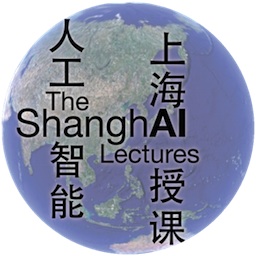In this 2nd part of the ShanghAI Lectures, Rolf Pfeifer looks at the paradigm “Cognition as Computation”, show its successes and failures and justifies the need for an embodied perspective. Following Rolf Pfeifer’s class, there are two guest lectures by Christopher Lueg (University of Tasmania) on embodiment and information behavior and Davide Scaramuzza (AI Lab, University of Zurich) on autonomous flying robots.
The ShanghAI Lectures are a video conference-based lecture series on Embodied Intelligence run by Rolf Pfeifer and organized by me and partners around the world.
Christopher Lueg: Embodiment and Scaffolding Perspectives in Human Computer Interaction
In this talk Professor Lueg will discuss how embodiment and scaffolding perspectives discussed in the ShanghAI Lectures on Natural and Artificial Intelligence can also be used to look at, and re-interpret, research topics in human computer interaction ranging from human information behavior in the real world to information interaction in online communities. In his work Professor Lueg understands human computer interaction as interaction with pretty much any kind of computer-based system ranging from desktop computers and mobile phones to microwave ovens and parking meters.
Davide Scaramuzza: Vision-Based Navigation: a Ground and a Flying Robot Perspective
Over the past two decades, we have assisted to a rapid research progress in driver-assistance systems. Some of these systems have even reached the market and have become nowadays an essential tool for driving. GPS navigation systems are probably the most popular ones. They have revolutionized the way of traveling and certainly facilitated research towards fully autonomous navigation in outdoor environments. However, there are still numerous challenges that have to be solved in view of fully autonomous navigation of cars in cluttered environments. This is especially true in urban environments, where the requirements for an autonomous system are very high.
Another research area that lately received a lot of interest—especially after the earthquake in Fukushima, Japan—is that of micro aerial vehicles. Flying robots have numerous advantages over ground vehicles: they can get access to environments where humans cannot get access to and, furthermore, they have much more agility than any other ground vehicle. Unfortunately, their dynamics makes them extremely difficult to control and this is particularly true in GPS-denied environments.
In this talk, Davide Scaramuzza will present challenges and results for both ground vehicles and flying robots, from localization in GPS-denied environments to motion estimation. He will show several experiments and real-world applications where these systems perform successfully and those where their applications is still limited by the current technology.
Related links:
